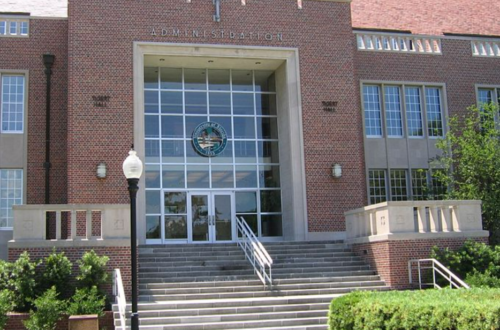Earlier this month, Florida legislators, so used to hearing from deep pocketed lobbyists and weary constituents, had a new type of guest knocking at their office doors.
Six energetic University of Florida students, associated with the new student-run Emerging Leaders in Science Policy and Advocacy (ELIPSA) club, travelled to Tallahassee to talk about two Florida issues which science could help solve.
The first group advocated for a well-researched mitigation of red tide: shellfish restoration.
Red tide in Florida is a result of a type of algae that produces neurotoxins harmful to life on both land and sea. When the bloom makes its way inshore, it feeds on fertilizer and waste-water runoff.
“Shellfish occur naturally in coastal waters and the ocean,” Alwin Hopf, a graduate student in the UF Agriculture and Biological Engineering department, said about ELIPSA’s findings. “It’s cleaning the water by filtering out fertilizer or unwanted substances in the water.”
“Due to mismanagement over the past years the natural shellfish population has declined in coastal waters,” he said. “So, we are just bringing it back to natural levels with shellfish restoration projects. As such, we came to the conclusion that it has economic benefits.”
Rep. Holly Raschein, (R), was one important legislator ELISPA spoke to. Raschein is the chair of the Agriculture and Natural Resources Appropriations subcommittee. Her district, which includes Key West and parts of the Everglades, is specifically susceptible to red tide.
But having a few allies in Tallahassee is not enough to get good legislation through.
One reason is that a representative friendly to scientific causes could lose the next election. A second reason is, to be effective, ELISPA projected a statewide shellfish renewal project would cost $50 million. This is double the annual budget of Rep. Raschein’s subcommittee.
Despite Gov. DeSantis’s proposed budget, the largest environmental budget in Florida history, which prescribed $25 million specifically to combat blue-green algae and red-tide, only a longshot could launch this budget through the state Senate.
Too often, people forget that budgets laid out by a lime-lighted executive live and die in the dim halls of Congress.
If we want to be cynical, it is hard to believe that politicians, without public pressure, would opt for a solution like ELISPA’s that is a one-time investment. While efficient, it would not create as many opportunities for jobs or graft as funding sewer system expansion or industrial green subsidies.
However, what we can take heart in is the fact that there is general bipartisan support for environmental action.
This can also be said of the other issue that ELISPA discussed with our legislators: food waste and insecurity.
According to Feeding America, America’s largest domestic hunger-relief organization that supports about 60,000 different programs, 13.4% of Floridians experience food insecurity.
Yet, Florida, compared to other states, offers minimal protections to organizations and individuals that have the ability to donate food that is otherwise going to waste, preventing a much-needed variety of calories from feeding the hungry.
“It’s like a waste three times over,” Alexandra Feldman, a civil engineering major at UF, and an ELISPA member, said.
“If we can find a way to make it easier on the people to make the donations, then that would be super helpful,” Giovanni Tomat-Kelly, an ELISPA member pursuing a PhD in agronomy at UF, added.
When in Tallahassee, the students highlighted the financial and legal hardships faced by farmers with surplus, businesses with leftovers, private homes that want to donate to food distribution agencies and agencies that charge nominal fees for their services.
If their policy suggestions are acted upon, we could see a decrease in food waste, hunger and dependence on government subsidies across the state.
According to ELISPA, Reps. David Silvers (D), Anthony Sabatini (R) and Loranne Ausley (D) all expressed an interest in sponsoring a bill to address food insecurity and food waste.
It is safe to say that legislation that has already been tested in other states and is relatively cheap is more likely to pass through Congress than an innovative water safety initiative.
Still, as easy as it is to be cynical, what we should recognize is how in Florida, we have youth that are actively advocating for our collective future using a scientific approach.
Let ELISPA serve as an inspiration for the rest of us constituents. In a state of turmoil, hunger, and deadly algae, we should still be able to advocate for our future.
Featured photo: Emerging Leaders in Science Policy and Advocacy students traveled to Tallahassee in October to lobby for various environmental measures. (Courtesy photo of ELISPA)





